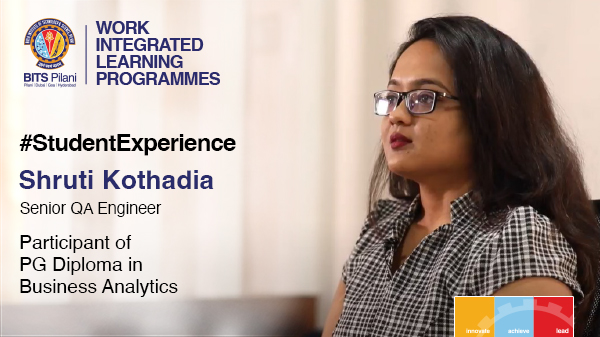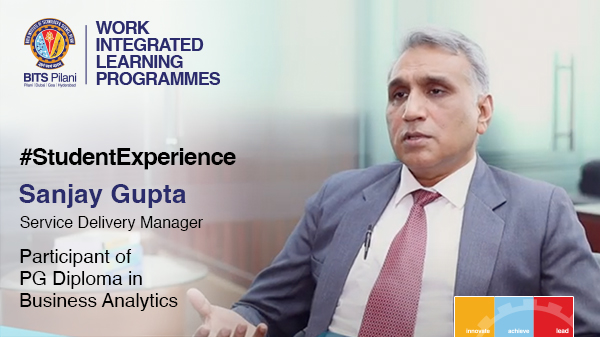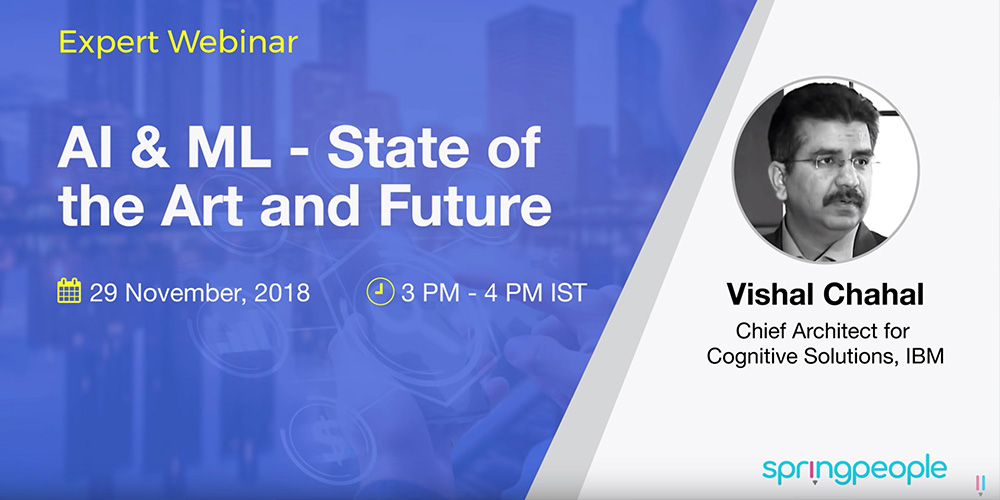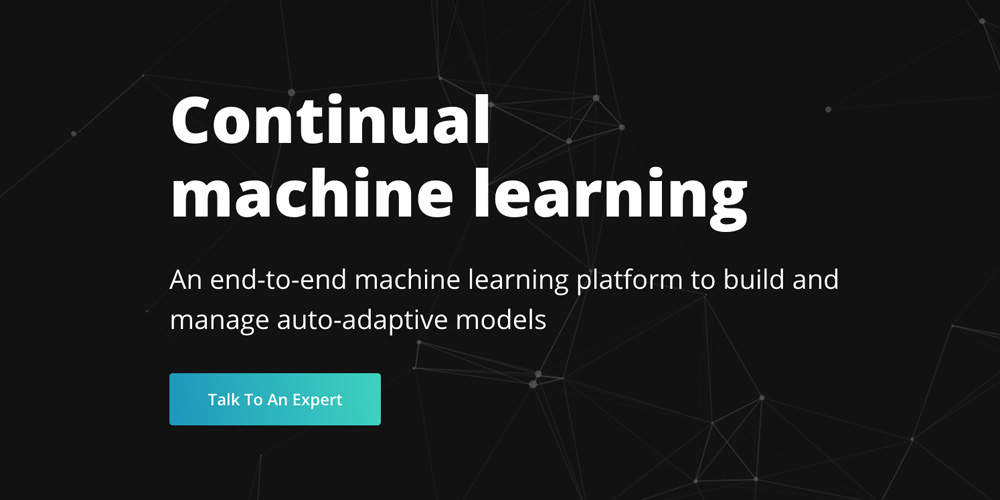Post Graduate Diploma in Automotive Cybersecurity
The global automotive Cybersecurity market size was valued at USD 2.0 billion in 2021 and is expected to reach USD 5.3 billion by 2026, at a CAGR of 21.3% during the forecast period 2021-2026, according to a MarketsandMarkets report. Automotive cybersecurity is becoming increasingly important with the rise of connected and autonomous vehicles.
The cybersecurity in an automotive vehicle has its unique set of challenges. The long lifespan of an automobile exposing itself to the hackers, the consequences of a cybersecurity breach, the complexity of the cyber-physical systems and the real-time response requirements limit the adoption of traditional cybersecurity methods in this context. It requires specialized knowledge and skills to address the challenges of automotive cybersecurity, which is what the program offers.
The Post Graduate Diploma in Automotive Cybersecurity is a two-semester program designed for working professionals , who are aspiring for rapid career progression in the high-growth area of Automotive Cybersecurity systems and wish to stand out in highly competitive work- places by acquiring prestigious Master’s-level qualification from a premierinstitution.
Programme Highlights
- The Post Graduate Diploma in Automotive Cybersecurity programme is a Work Integrated Learning Programme (WILP) spanning seven semesters. BITS Pilani's Work Integrated Learning Programmes are approved by the University Grants Commission (UGC).
- Attend live-lectures from anywhere over an online technology-enabled platform. These live lectures would be conducted by faculty mostly on weekends or after business hours enabling working professionals to pursue the programme along with their jobs..
- Program promoted by the Telangana Mobility Valley as a part of a State-wide development initiative
- Programme and curriculum developed by senior faculty and researchers in this field, Labs to develop working competence
- Campus immersion to interact and work with faculty experts and research scholars in their labs
- Faculty led industry scale projects for working professionals
- Program designed to suit working professionals with no industry experience
- Blended learning with live instructor led lectures complemented by digital content
- Technology enabled learning offering flexibility to learn at one's own phase (within the semester calendar)
- Continuous formative assessments in addition to the end-semester summative assessment
- Students may study from home/anywhere and can take the program in addition to other formal educational/employment programs.
- Participants who successfully complete the programme will become members of an elite & global community of BITS Pilani Alumni.
Programme Curriculum
- Introduction to Autotronics
- Automotive Networks and Communications
- Embedded Network Security
- Automotive Security
- Ethical Hacking
- Cyber Security and Cyber Laws
- Network Security
- Elective 1
- Elective 2
- Elective 3
- Software Engineering for Secure Systems
- Cloud and IoT Security
- AI and ML for Cyber Security
- Cryptography
- Information Security Project
- Network Security Project
- Cyber Forensics and Incident Handling
- Blockchain Technology
Choice of Electives is made available to enrolled students at the beginning of each semester. A limited selection of Electives will be offered at the discretion of the Institute.
For detailed programme curriculum, download the brochure.
Mode of Learning
The Mode of Learning used in this programme is called - Work Integrated Learning. Internationally, Work Integrated Learning (WIL) is defined as "An educational approach involving three parties - the student, educational institution, and employer organization(s) - consisting of authentic work-focused experiences as an intentional component of the curriculum. Students learn through active engagement in purposeful work tasks, which enable the integration of theory with meaningful practice that is relevant to the students' discipline of study and/or professional development*.
An education model can be considered as WIL if and only if:
- The programs are designed and developed by the institute in collaboration with industry.
- Work-focused experiences form an active part of the curriculum.
- The program structure, pedagogy and assessment enable integration of theory-with relevant practice.
The innovative Work Integrated Learning Programs (WILP) of BITS Pilani are quite aligned with the above definition and requirements. The programs are designed in collaboration with its industry partners, subject matter experts from industry and academia that enable the students to remain relevant in their chosen profession, grow in their career and retain the habit of lifelong learning. The continued availability of workplace related experiences along with the weekly instruction sessions promote integration of theory with practice. An active participation of the organization mentor in the learning process of the student plays a key role. Case studies, simulation exercises, labs and projects further strengthen this integration.
The WILP of BITS Pilani is comparable to its campus-based programs in terms of structure, rigor, instruction, labs, assessment, faculty profile and learning support. The pervasive adoption of technology in all its academic processes makes the same high-quality education of BITS Pilani available to the aspirants at scale with the required flexibility.
Key Benefits of BITS Pilani WILP
1) Can pursue the programme without any career break and along with the job.
2) The programme curriculum is highly relevant to sectors, industries and organisations they work for
3) In addition to the institute, the learning experience of working professionals in the programme is also supported by the employer organisation and Industry Mentors.
4) Effective use of technology to deliver a range of learning interventions at the location of the working professional such as faculty contact sessions, asynchronous learning materials, remote, virtual and cloud labs, Learner support, peer to peer collaboration etc.
5) Contact sessions with faculty take place mostly over weekends or after business hours and are conducted over a technology platform that can be accessed from anywhere.
6) Mid semester and End semester examinations for every semester are conducted mostly at designated examination centres distributed across the country (for details refer to link mode of examinations)
7) Learners can access engaging learning material which includes recorded lectures from BITS Pilani faculty members, course handouts and recorded lab content where applicable.
EXPERIENTIAL LEARNING
Experiential learning opportunities that can help build the skills and competencies listed in the document include:.
- Hands-on experience with automotive systems to assess their vulnerabilities through lab exercises and internship opportunities.
- Participation in competitions or challenges related to automotive cybersecurity to develop skills in threat modeling, risk assessment, penetration testing, and vulnerability analysis.
- Learning about and implementing automotive cybersecurity standards and regulations through classroom instruction or practical projects.
- Collaborating with cross-functional teams on real-world projects to gain experience in secure software development practices, effective communication, and problem-solving skills.
These are just a few examples, and there may be other experiential learning opportunities that can help build the skills and competencies required for automotive cybersecurity.
CONTINUOUS ASSESSMENT
Continuous Assessment includes graded Assignments/ Quizzes, Mid-semester exam, and Comprehensive Exam.
CASE STUDIES AND ASSIGNMENTS
Case Studies and Assignments: Carefully chosen real-world cases & assignments are both discussed and used as problem-solving exercises during the program
Labs
Training graduates in automotive cybersecurity requires a combination of theoretical knowledge and practical skills. To provide students with hands-on experience, the following lab infrastructure is made available to the students:
Automotive hardware and software
Students are provided access to actual vehicles and vehicle components, such as engine control units (ECUs), electronic control modules (ECMs), and infotainment systems. They also have access to automotive software, such as automotive operating systems and diagnostic tools.
Cybersecurity testing tools
Students have access to various cybersecurity testing tools, such as network sniffers, penetration testing tools, and vulnerability scanners. These tools are necessary for identifying and testing vulnerabilities in automotive systems.
Simulation environments
Creating simulation environments for automotive cybersecurity is essential for training students in a controlled and safe environment. Simulated environments help students practice and develop their skills in a risk-free environment.
Data acquisition and analysis tools
Students gain access to tools that enable them to collect and analyze data from automotive systems. These tools can help students understand how systems operate, identify patterns and anomalies, and identify potential threats.
Networking infrastructure
A network infrastructure that mimics real-world automotive networks is provided for training students in automotive cybersecurity. Students understand how these networks operate and identify vulnerabilities and threats within them.
Cybersecurity policies and procedures
Training in automotive cybersecurity include knowledge of cybersecurity policies and procedures. Students understand the importance of complying with regulations and standards related to cybersecurity in the automotive industry.
Overall, the lab infrastructure for training graduates in automotive cybersecurity provides students with practical, hands-on experience in a safe and controlled environment. The infrastructure include hardware, software, simulation environments, data storage and analysis tools, networking infrastructure, and policies and procedures.
Mode Of Examination
Mode of Examinations applicable for students admitted in Batch starting in April/May 2024:
Semester 1, 2 have Mid-Semester Examinations and Comprehensive Examinations for each course. These examinations are mostly scheduled on Friday, Saturday or Sunday. Students need to appear in person for taking the examinations at the institution’s designated examination centres as per the examination schedule, Instructions, rules and guidelines announced before every examination.
Students can take their examination at any of our 33 designated examination centres in India at the following locations:
South Zone: Bangalore - North, Bangalore - Central, Bangalore - South, Bangalore - East, Chennai - North , Chennai - Central , Chennai - South, Hyderabad, Secunderabad, Vijayawada, Visakhapatnam, Kochi, Thiruvananthapuram and Coimbatore.
North Zone: Delhi, Gurugram, Noida, Jaipur, Chandigarh, Lucknow and Pilani.
West Zone: Mumbai, Navi-Mumbai,Pune, Pune - Pimpri Chinchwad, Goa, Ahmedabad, Indore and Nagpur.
East Zone: Kolkata, Guwahati, Jamshedpur and Bhubaneshwar.
In addition to these locations, the Institution also has a designated examination centre in Dubai.
During these semesters, in addition to the above mentioned Mid-Semester and Comprehensive examinations, there will also be Quizzes/Assignments conducted online on the Learning Management System (LMS) as per the course plan in which the students need to participate.
Eligibility Criteria
Employed professionals holding B.E./ B.Tech./ M.Sc./ Integrated First Degree of BITS or its equivalent with at least 60% aggregate marks, and are employed in an industry relevant to the program.
Fee Structure
The following fees schedule is applicable for candidates seeking new admission during the academic year 2024-25.
- Application Fees (one time) : INR 1,500
- Admission Fees (one time) : INR 16,500
- Semester Fees (per semester) : INR 71,750
The one-time Application Fee is to be paid at the time of submitting the Application Form through the Online Application Centre.
Admission Fee (one-time) and Semester Fee (for the First Semester) are to be paid together once admission is offered to the candidate. Thus, a candidate who has been offered admission will have to pay INR 80,000/-. You may choose to make the payment using Netbanking/ Debit Card/ Credit Card through the Online Application Centre. Option to pay fees using an easy EMI with 0% interest and 0 down payment. Click here to learn more.
Semester Fee for subsequent semesters will only be payable later, i.e. at the beginning of those respective semesters.
Any candidate who desires to discontinue from the programme after confirmation of admission & registration for the courses specified in the admit offer letter will forfeit the total amount of fees paid.
For the examination centre at Dubai, in addition to the semester fees, for each semester there will be an examination centre fees of 1000 UAE Dirhams or equivalent per semester out of which 500 UAE Dirhams is to be paid at the time of appearing in Mid-semester examinations at Dubai Centre for that semester and the remaining 500 UAE Dirhams is to be paid at the time of appearing in comprehensive examinations at Dubai centre for that semester.
All the above fees are non-refundable.
Important: For every course in the program institute will recommend textbooks, students would need to procure these textbooks on their own.
How to Apply
- Once you have logged in, you will see a screen showing 4 essential steps to be completed to apply for the programme of your choice.
- Begin by clicking on Step 1 - ‘Fill/ Edit and Submit Application Form’. This will enable you to select the programme of your choice. After you have chosen your programme, you will be asked to fill your details in an online form. You must fill all the details and press ‘Submit’ button given at the bottom of the form.
- Take the next step by clicking on Step 2 - 'Download Application PDF Copy’. This will download a pdf copy of the application form on your computer.
- Now, click on Step 3 - 'Pay Application Fee’ to pay INR 1,500/- using Netbanking/ Debit Card/ Credit Card.
- Take a printout of the downloaded Application Form and note down the Application Form Number displayed on the top-right corner of the first page. This Application Form Number should be referred in all future correspondence with BITS Pilani.
-
In the printout of the downloaded Application Form, you will notice on page no. 3 a section called the Employer Consent Form. Complete the Employer Consent Form. This form needs to be signed and stamped by your organisation’s HR or any other authorised signatory of the company.
Important: In view of work-from-home policies mandated by many organisations, a few candidates may not be able to get the physical forms signed by their HR/ other authorised organisational representative. Such candidates may instead request an email approval to be sent to their official email ID by the HR using the format available through this link.
-
Further on page no. 4 of the printed Application Form is a section called the Mentor Consent Form. The Mentor Consent Form needs to be signed by the Mentor. Click here to know who could be a Mentor.
Important: In view of work-from-home policies mandated by many organisations, a few candidates may not be able to get the physical forms signed by their Mentor. Such candidates may instead request an email approval to be sent to their official email ID by the Mentor using the format available through this link.
- Further on page no. 5 of the downloaded Application Form, is a Checklist of Enclosures/ Attachments.
- Make photocopies of the documents mentioned in this Checklist.
- Applicants are required to self-attest all academic mark sheets and certificates.
- Finally, click on Step 4 - 'Upload & Submit All Required Documents’. This will allow you to upload one-by-one the printed Application Form, Mentor Consent Form, Employer Consent Form, and all mandatory supporting documents and complete the application process. Acceptable file formats for uploading these documents are DOC, DOCX, PDF, ZIP and JPEG.
- Upon receipt of your Application Form and all other enclosures, the Admissions Cell will scrutinise them for completeness, accuracy and eligibility.
- Admission Cell will intimate selected candidates by email within two weeks of submission of application with all supporting documents. The selection status can also be checked by logging in to the Online Application Centre.
FAQs
Meant for engineering graduates with or without industry experience aspiring to venture into the niche domain of cybersecurity.
Post Graduate Diploma in Automotive Cybersecurity from BITS Pilani one of the institutes recognized as Institution of Eminence by the MoE.
Yes, you will join the proud alumni network of BITS Pilani and you can participate in all the relevant events organized by the BITSAA.
This program is designed for engineering graduates who do not have any prior working experience in cybersecurity or automotive engineering. The program prepares the engineers for a career in the niche domain of automotive cybersecurity from basics. Thus, it is not a short term training/ skill development program but a comprehensive formal post graduate diploma program.
On an average a student is expected to spend around 25-30 hours per week.
Students can interact with their respective faculty during the periodic contact sessions. In addition to this students can reach out to the faculty and teaching assistants using discussion forums and chats.
A student aspiring to enroll for the program should have a valid engineering degree.
Cybersecurity in general and automotive cybersecurity in particular is a rapidly emerging area with significant skill gaps. Organizations are keen to recruit people who have adequate knowledge in cybersecurity. This program has been designed in collaboration with such organizations to bridge this skill gap. Telangana Mobility Valley as a part of the larger initiative is promoting this program. Considering the above it can be said with fair confidence that students will secure placement on successful completion of the program. The institute will also organize periodic engagements with prospective industries to showcase the student talents.
Such students need to undertake a special course namely Automotive Vehicles. The digital content will be shared by the institute and it will be a self learnt course. There will not be any assessment/ grading for this

.jpg)




